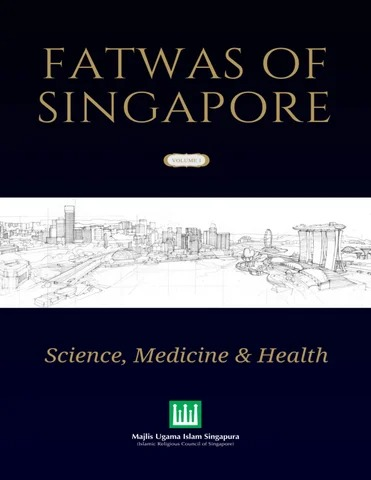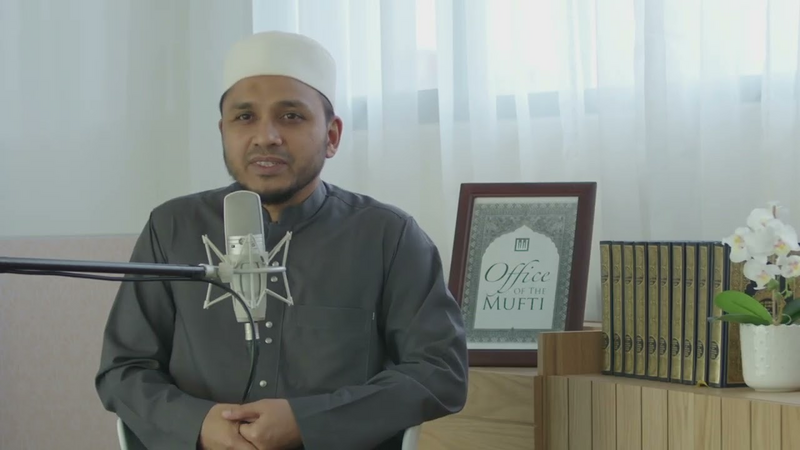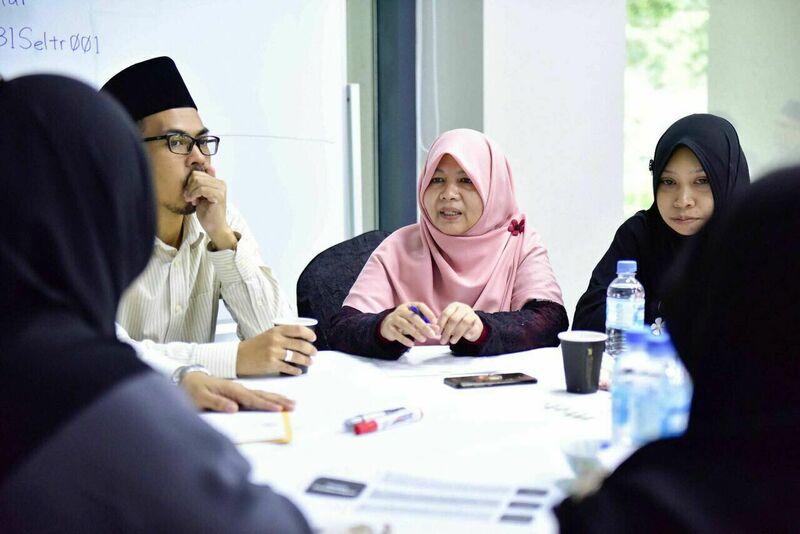5 things to know about Fatwa
This article was first published on 15 June 2022 and has since been updated as of 17 September 2025.
Introduction
In the face of unprecedented challenges in life, the Muslim community may need greater clarity to ensure that our lived realities remain guided by Islamic requirements and teachings. Oftentimes, we find ourselves in ever more unique situations that raise intricate questions which require the issuance of religious guidance and advisory from our scholars and religious institutions.

This article will discuss the main elements and features of fatwa as well as its process in our local context, with hopes that members of our community can appreciate its complexities and intricacies.
Definition of Fatwa
There are several definitions to describe the meaning of fatwa. From the literal sense, the term fatwa comes from the Arabic root word (فَ-تَ-يَ) which means “to clarify”. According to the Arab lexicographer Ibn Manẓūr, who was also the author of the Arabic dictionary called Lisān al-ʿArab, when one provides a fatwa on a particular issue, this means that the person provides clarification about the issue raised.
In the study of Shariah, different scholars and jurists have provided us with a variety of descriptions when defining the term fatwa. For example, according to the medieval scholar Ibn Hamdān, the issuance of fatwa refers to “informing Allah’s law from religious evidence”, while another scholar known as al-Alūsī described it as “clarification of an issue concerning the Shariah Law”.
In summary, based on the various definitions stated by both classical as well as contemporary scholars, one may conclude that fatwa refers to a religious ruling or position issued by a qualified legal scholar or an official religious authority in response to a question raised by an individual or an organisation.
Listen to this podcast episode, where the Mufti speaks about fatwa: Mufti speaks about Fatwa on Tea with Mufti.
Religious basis of Fatwa
The term fatwa and its functions have been recorded in several verses of the Quran as well as the prophetic tradition (hadith).
For example, in Surah An- Nisā’ verse 127, Allah states:
وَيَسْتَفْتُونَكَ فِي النِّسَآءِ ۖ قُلِ اللَّهُ يُفْتِيكُمْ فِيهِنَّ
“They ask your legal instruction concerning women (O Prophet Muhammad), say: ‘Allah gives you Fatwa concerning them.’”
(Surah An-Nisā’, 4:127)
And from a Hadith, Ibn Abbas r.a. narrated:
وَعَنْ اِبْنِ عَبَّاسٍ رَضِيَ اَللَّهُ عَنْهُمَا قَالَ: اِسْتَفْتَى سَعْدُ بْنُ عُبَادَةَ رضى الله عنه رَسُولَ اَللَّهِ صلى الله عليه وسلم فِي نَذْرٍ كَانَ عَلَى أُمِّهِ, تُوُفِّيَتْ قَبْلِ أَنْ تَقْضِيَهُ ? فَقَالَ: "اِقْضِهِ عَنْهَا"
Sa'd bin Ubada r.a. asked Rasulullah s.a.w. for a ruling regarding a vow taken by his mother who had died before fulfilling it, and he said, "fulfill it on her behalf."
(Sahih Al-Bukhari and Muslim)
Elements of Fatwa
When discussing about Fatwa, there are several important elements and terminologies:
(1) Iftāʾ (الإفتاء): refers to the activity and process of issuing a religious ruling regarding the issue of concern
(2) Mustaftī (المستفتي): refers to the questioner, whether an individual or an organisation that requests for the religious ruling
(3) Mufti (المفتي): refers to the qualified legal scholar who is responsible for the issuance of the religious ruling
(4) Fatwa (الفتوى): refers to the religious ruling issued regarding the issue of concern
Who can issue a fatwa?
For a fatwa to be issued, there is a need for the matter in question to be raised to a qualified Mufti, who must also be aware of the context of the question and mustaftī, to effectively embark upon the process of iftāʾ. Essentially, the process of fatwa issuance can be rather complex and complicated, especially when it concerns issues that are highly intricate and multifaceted. It is hence understandable why fatwa issuance is not for anyone or everyone to embark upon.

For a person to be regarded as a qualified legal scholar, they are expected to have attained a certain level of knowledge and expertise, to ensure that the heavy responsibility of iftāʾ is carried out in the best manner possible. On this matter, Imam al-Nawawi mentions the risks involved in being a Mufti:
“Know that the act of issuing fatwa is a task of very high risk and danger, a position of great honour with many merits. This is because the Mufti is an inheritor of the Prophets (peace and prayers be upon them) and (the Mufti) is performing a farḍ kifāyah (collective responsibility). However, he (the Mufti) may be subject to error in his views, and therefore they say that a Mufti is a signatory of Allah.”
Fatwas in Singapore
The constant evolution of science and technological advancements, as well as the lived realities of life in a dynamic society like Singapore, has raised new questions which require solutions through fatwa.
Read: Published Fatwa by Majlis Ugama Islam Singapura
As this task requires a high level of expertise in addition to a wide-ranging understanding of various disciplines, like many other countries, Singapore has adopted the concept of Iftāʾ Jamāʿī (collective Fatwa Issuance) by forming a Fatwa Committee to assist the Mufti so that the rulings are deliberated upon in a holistic and comprehensive manner.

Read: Fatwa Committee: Majlis Ugama Islam Singapura
Locally, the appointment of a Mufti and the establishment of the Fatwa Committee are formalised through the Administration of Muslim Law Act (AMLA) which came into effect in 1968.
In 1999, a department called the Office of the Mufti was established in MUIS to support the Mufti in keeping up with the religious needs of the local community and to essentially function as the secretariat to the Fatwa Committee which is responsible for handling the operational duties related to the issuance of fatwa.
Visit: Office of the Mufti
As the secretariat of the Fatwa Committee, the Office of the Mufti gathers necessary references and information to be disseminated to the committee members. Depending on the case at hand, individuals who can contribute in terms of ideas, views and expertise will be invited to the fatwa discussions, including (but not limited to) experienced religious teachers and even other domain experts like medical professionals.
Follow: Office of the Mufti on Instagram
The process of fatwa-making in Singapore, therefore, differs from the books of classical Fiqh, in which any religious answer issued by an individual religious scholar or jurist is considered a fatwa. In Singapore, each Fatwa issued by the Fatwa Committee is considered a fatwa jamā’ī (collective) and not fardī (individual). All fatwas issued must be based on the unanimous decision of the Fatwa Committee. In other words, if no consensus is reached on a particular decision, a fatwa cannot be issued in Singapore.
Listen to: Office of the Mufti on Spotify
Differences between fatwa and irsyad
While anyone may pose a question to the Fatwa Committee seeking a fatwa in any religious matter, it is for the Fatwa Committee to decide on the necessity of issuing a fatwa on the issue in question (Section 32(3) of AMLA). Questions not brought up to the Fatwa Committee will then be answered by the Office of the Mufti instead, and such responses are termed as irsyad.
Religious guidance (Irsyad) issued by the Office of the Mufti is normally issued due to one of the following reasons:
a. The issue was not brought to the Fatwa Committee for discussion, as there is already sufficient and suitable guidance from existing works on the matter,
b. The question was answered by the MUIS Council as the Fatwa Committee was unable to reach a unanimous decision or consensus.
Read: Published Advisory (Irsyad) from Office of the Mufti
Fatwa lab
How is the Fatwa Committee keeping up with the ever-rising demand of contemporary issues in Singapore? Questions are getting more complex, and the concerns now encompass multifaceted scenarios that require deeper analysis beyond straightforward religious matters.
The Fatwa Lab, first announced at the 2024 fatwa conference, is an innovative platform designed to address contemporary challenges through rigorous academic research and collaboration.
Serving as an intellectual space for aspiring religious scholars and researchers, the Fatwa Lab employs a multidisciplinary approach that brings together Islamic jurisprudence experts with professionals from diverse fields including Economics, Medicine, Law, and Social Sciences. The initiative focuses on developing fatwa formulation skills through critical thinking and forward-looking research, particularly utilising the principles of Al-Fiqh Al-Aftirāḍī to anticipate and address potential future challenges through hypothetical scenarios.
Read more about MUIS’ Fatwa Lab: Fatwa Lab | Majlis Ugama Islam Singapura
Conclusion
The role of fatwa and the Fatwa Committee becomes extremely crucial today due to the fast-paced environment and interconnected world we are living in. Indeed, members of the Muslim community are exposed to a variety of new issues and challenges that require rigorous religious analysis before the most appropriate religious position can be agreed upon.
While Fatwa issuance can provide solutions to present and future challenges, the process of iftāʾ is becoming even more complicated due to the intricate nature of the issues raised, especially for the Muslim community in a secular, multi-ethnic, and multi-religious country like Singapore. Ultimately, the main objective of Fatwa issuance is to provide reliable and practical solutions considering our lived realities that continue to evolve with the change of place, time, people, and circumstances.
May Allah grant patience and wisdom to our religious leaders and authority, reward their efforts in fulfilling such a heavy responsibility, as well as bless them in this world and the next.
References
1. Fatwa Contribution to the Development of Islamic law. Fitrah: Jurnal Kajian Ilmu-ilmu Keislaman Vol. 5. (2019)
2. Fatwas of Singapore: Science, Medicine & Health. Majlis Ugama Islam Singapura. (2017)
Articles on Muslim.Sg may be reproduced electronically or in print with prior permission from Muslim.Sg. Proper credit must be given to the author(s) and Muslim.Sg.

